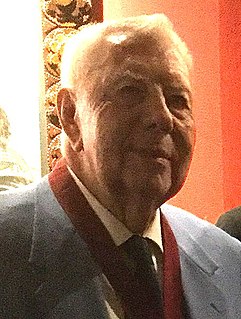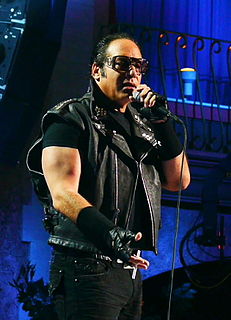A Quote by Adrian Tomine
I was very aware of the fact that there are a lot of comics out there that I love, because I've grown up my whole life reading comics and I know every little nuance of the language and all the implications.
Related Quotes
Since I started as a comic person then became a musician to me it was interesting because I have this really great, interesting fanbase that's really smart and energetic and uh how could I steer them towards a medium that shaped who I was? You know, steer them toward comics. That was really the goal, to bring a lot of readers cuz they were reading a lot of comics but most of them hadn't been reading American comics, they'd be reading manga sitting on the floor of a Barnes and Noble.
There are a lot of good comics, no doubt, but as far as the quality of the comics goes, I think what you have is a bunch of situational comics - there are black comics that work only black crowds, gay comics that do only gay crowds, and southern comics that only work down South, and so on with Asian, Latino, Indian, midgets, etc. The previous generation's comics were better because they had to make everybody laugh.
Self-publishing in comics is core to the whole artform. There is no scarlet letter in comics as there still is, to some degree, in prose. As no publisher for a long time would publish serious work in comics, the only way a lot of it came out was because of self-publishing. Many of the greatest works of the medium are self-published.
I don't think that people are necessarily going to films simply because they were adapted from comics, though I could be wrong. Comics aren't really misunderstood either, they've just been mostly silly for the past century, and those genre-centered stories have found their way into the movie theaters over the past couple of decades because a generation who grew up reading them has, well, grown up.
The magic of comics is that there are three people involved in any comic: There is whoever is writing it, and whoever is drawing it, and then there's whoever is reading it, because the really important things in comics are occurring in the panel gutters, they're occurring between panels as the person reading the comics is moving you through, is creating a film in their heads.
I always wanted to give people the more exciting version of what I think a comedian should be - because I didn't grow up with comics, I grew up with rock 'n' roll. And when I saw a lot of comics, no matter how good they might have been material-wise, I would get a little bored with them after 10 minutes, only because I feel comedians don't really know performance.
The lovely thing about writing comics for so many years is that comics is a medium that is mistaken for a genre. It's not that there are not genres within comics, but because comics tend to be regarded as a genre in itself, content becomes secondary; as long as I was doing a comic, people would pick it up.
I started drawing comics, and at first I was very influenced by the whole pop art movement, you know, Batman was on TV and all that pop art stuff? But then my next influence was in 1966, or maybe it was '65, I don't know. Somebody showed me a copy of the "East Village Other", which was an underground newspaper. And... it had comics in it! And they weren't superhero comics.
To journalists my move from comics to films to best-selling novels was resembling those little evolutionary maps too much, where you see the fish, and then it can walk, and then it's an ape and then it gets up on its hind legs and finally it is a man. I didn't like that. I didn't like the fact that there was something rather amphibious about me - at least in their heads - back when I was writing comics. So I like continuing to write comics, if only because it points out that I haven't just started to walk upright or left the water.
































